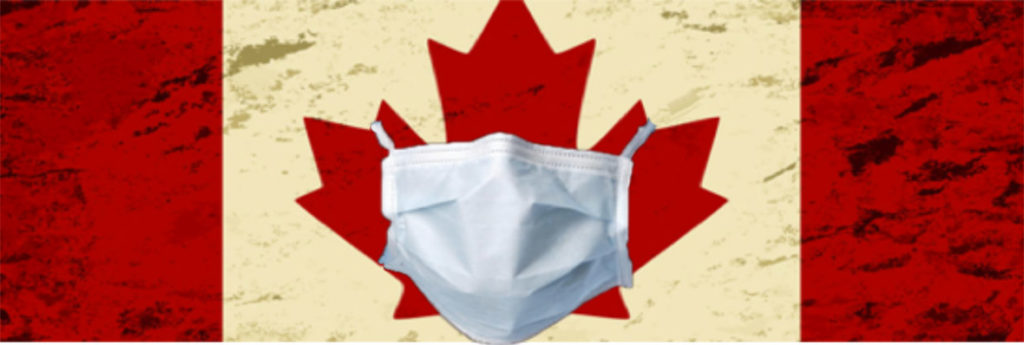By the time you read this the figures undoubtedly will have changed. It is virtually impossible to keep up with the fast spreading coronavirus pandemic, so we will attempt to give you the latest information we have and provide you the links to the relevant government, tourism and health entities.
Check here for Information and updates
And here’s what has been happening:
Nova Scotia has confirmed its first four presumptive cases of COVID-19. Public health officials say the individuals have been notified and are in self-isolation. The province says all three cases are related to travel.
Ontario is reporting 39 new cases of COVID-19 in the province. Government figures suggest the majority of the cases are concentrated in southern Ontario. The total number of cases in the province currently stands at 142, with five classified as resolved.
The Ontario government is planning to table a bill aimed at helping workers affected by the COVID-19 outbreak. A statement from the Premier’s office says the new bill will direct employers to offer protected leave for people affected by the pandemic.
It will also waive the requirement for employees to obtain sick notes if they need to go into self-isolation or care for anyone in quarantine.
Ontario is closing all casinos as a precaution during the COVID-19 outbreak. The Ontario Lottery and Gaming Corporation says the closures have started going into effect today and should be fully implemented in the next 24 hours.
Quebec Premier Francois Legault is asking for the closure of public places in the province such as bars, gyms, libraries and movie theatres. He says restaurants can stay open but are being asked to limit the number of clients to 50 percent capacity.
Legault says Quebecers should only leave home if they’re going to work, buying food and essentials, helping the elderly and spending time outdoors.
Quebec is reporting 11 new cases of COVID-19, bringing the province’s total to 35.
VIA Rail says it’s scaling back service in its corridor from Windsor to Quebec City to comply with government guidelines for social distancing.
The company says it will reduce service by 50 percent in the busy corridor, which includes routes between Montreal, Ottawa, Toronto and London, Ont.
VIA Rail said they already experienced a significant reduction in passenger volume last week.
Prime Minister Justin Trudeau says he hasn’t been tested for COVID-19 on the advice of public health officials. Trudeau says he’s not showing any symptoms of the illness.
He says officials are urging people in his position not to get tested, and so he would prefer to see testing kits reserved for people who are showing symptoms.
Trudeau’s wife, Sophie, tested positive for the novel coronavirus on Thursday after she returned from a trip to London, U.K.
Canada’s response
Trudeau says nothing is off the table when it comes to the next phase of Canada’s response to the spread of COVID-19.
He told CTV’s Question Period that a discussion about border closures or mandatory screening of all returning travellers will be part of a cabinet meeting today.
Come Home
The government signalled to Canadians abroad on Saturday that they need to come home or risk get stuck in the dozens of countries now cancelling international flights and shutting down borders in a bid to stop the rampant global march of the virus.
Trudeau said that the countries that did implement stricter border controls after the outbreak began in China have not cut themselves off from the virus, and the monitoring efforts in Canada have been working to hold back a spike in cases.
“We were able to track people, we were able to contain the virus at that point. We’re going to continue trusting our public health officials,” he said in an interview from outside his home, where he and his family remain in self-isolation following his wife’s diagnosis with the illness.
“We are hearing the concerns people have had. The shift in posture from the United States of course gives us significant things to think about and we will be discussing it later today among other measures at our cabinet meeting.”
Donald Trump has implemented travel bans to the US from Europe, creating chaos at airports that’s also being seen in Canada.
Travellers returning to Canada have reported long lines at airports with what appear to be minimal precautions being taken to slow the spread of the virus and the government is being questioned on why only those returning from known hot spots are being grilled about their health.
Trudeau said many of those who have faced minimal screening so far aren’t coming from areas of concern, and public health resources are best directed out into the community, not at airports.
He suggested however that changes are coming.
“That is in the process of happening, I’ve heard directly from our public security officials and CBSA who are bringing in new measures right now,” Trudeau said, when asked about implementing mandatory screening for all, but did not provide further detail.
Trudeau said the money his government allocated last week is also meant to ensure there are enough testing kits and other medical equipment available for those who need it.
Most people diagnosed with COVID-19 experience mild or moderate symptoms, such as fever and cough, and the vast majority of those who contract the virus recover. The Public Health Agency of Canada says the risk to the general population is low.
However, for some, including Canadians aged 65 and over, those with compromised immune systems and those with pre-existing conditions, the illness can be much more severe. Among the Canadians diagnosed with the illness so far, fewer than 15 percent have required hospitalization.
The growing number of cases has prompted widespread closures of schools and universities, mass cancellation of large-scale events, multimillion-dollar economic stimulus packages from governments, and the suspension of the Parliament until April 20.

